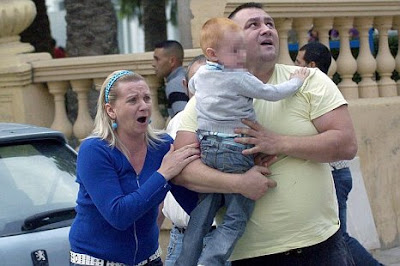SCHILLER: I'VE SEEN IT ALL
|
|
FIRE, WATER, EARTH, AIR.
OUR LIFE AND DEATH
|
 |
| HAITI 2010 |
Moments of Eternity
Strangers stealing someone else's dream
I've seen it all
Haunting for a mystery
Longing for your life in times like these
I've seen it all
I remember the time
Once in your life, oh baby
Get you here in my head
Here in my head, oh maybe
I've seen it all
Waiting on the battlefields
Time is running slow until it ends
I've seen it all
Haunting for a mystery
Longing for your life in times like these
I've seen it all
I remember the time
Once in your life, oh baby
Get you here in my head
Here in my head, oh maybe
I've seen it all, seen it all
Like I've never seen before
Catching of the smile instead of all
Asking you to never let me go
It will never be the same forever
I've seen it all
 |
| NEW ZEALAND 2011 |
Most disasters in especially poor countries have been found to occur as a result of poor quality construction and environmental degradation resulting from poor land use. Floods are attributable to building on water ways and poor sanitation and sewage systems.
A stage in the preparedness plan is to adopt standards and regulations that will ensure better building plans and use of land, among other things, to prevent floods and reduce losses in other disasters. These standards and regulations must include the development and enforcement of seismic codes, in an earthquake prone area, preventing people from building in high seismic areas, better building design and improved quality of construction, avoidance of deep well injections and filling of water impoundments, etc.; preventing people from building on water ways in flood risk areas and so on.
A natural disaster is the result of a vast ecological breakdown in the relationship between humans and their environment through violent imbalances of one or more of
the four elements, fire, water, air, and earth. A natural disaster is always a serious and sudden event on such a scale that the stricken community needs extraordinary efforts to cope with it, often with outside help or interventional aid. After the study of Emilia Romagna earthquake and resilience, I found the amazing example of Father Ivan Martini. He was especially sensitive with poor people, taking care of their education. But Emilia Romagna, as other parts of Europe, suffered from a
seismic amnesia for the last 450 years. Last year, Lorca in Spain woke up after 130 years of a similar
seismic amnesia. Sofía, a few weeks ago, suffered also from a seismic shock. How many areas in Europe are still living in a dream?
 |
Father Ivan Martini was killed May 29 when falling debris crashed on top of him while he was trying to save sacred and liturgical objects in the church. Fear and anxiety are natural responses to the terror and destruction wrought by a natural disaster, but God's love is rock solid, providing certainty and solace for all victims, Pope Benedict XVI said when talking about him.
|
We need to identify disaster-prone areas through geological map sharpening and detailed mapping of our countries, and even smaller regions, to be disaster prone, and start with many disaster management teams to organize programmes to educate the people on the findings, their implications, and what to do when disaster strikes. This can be done through the media, the disaster management staff can also visit schools, organizations and houses to inform and educate the people. The disaster education programmes can even be incorporated into school curricula. The education programmes normally inform the people on what they should do and how they should behave during the impact phase of a disaster, the kits and food they should get at the pre-impact phase, and also how to protect important documents and store potable water. We Europaens are still almost illiterate in this regard. So we technicians, must call our neighbors to awareness, especially after the l’Aquila, Emilia Romagna, and Lorca events.
 |
| PAKISTAN 2005 |



























































No hay comentarios:
Publicar un comentario